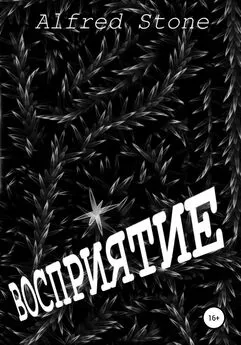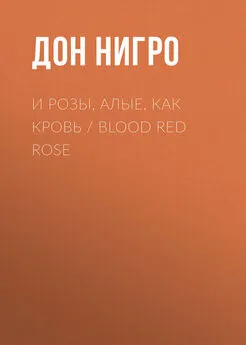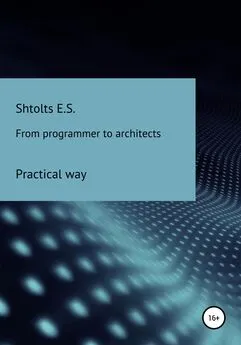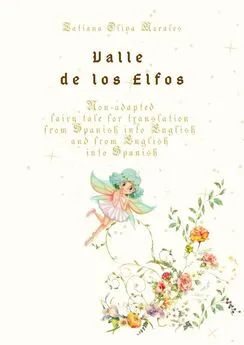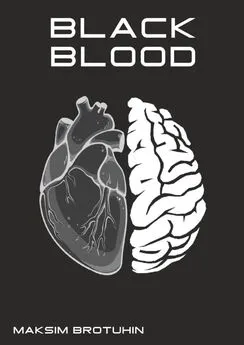Donna Leon - Blood from a stone
- Название:Blood from a stone
- Автор:
- Жанр:
- Издательство:неизвестно
- Год:2005
- ISBN:нет данных
- Рейтинг:
- Избранное:Добавить в избранное
-
Отзывы:
-
Ваша оценка:
Donna Leon - Blood from a stone краткое содержание
Blood from a stone - читать онлайн бесплатно полную версию (весь текст целиком)
Интервал:
Закладка:
Brunetti had met him some years before, when he was investigating the disappearance of a woman from Kosovo who was believed to be involved in the drug trade. The woman had never been found, but he and Don Alvise had remained in friendly contact since then, each occasionally able to do the other a favour or provide information that could be of use in the pursuit of their different goals.
Brunetti knew that there was an official, governmental structure that would provide him with information about the extracomunitari ; the Questura certainly had ample documentation on them. But he knew that Don Alvise’s information, though it could not be considered in any way official, would be far more accurate. Perhaps the difference lay in the fact that, to the public administration, these people were problems, while to Don Alvise they were people with problems.
As the boat made its way slowly up the Grand Canal, Brunetti explained to Vianello why he wanted to see the former priest. ‘They trust him,’ he said, ‘and I know he helps find houses for a lot of clandestini .’
‘The Senegalesi?’ Vianello asked. ‘I always thought they were a sort of closed community. And I think they’re Muslim, most of them.’
Brunetti had heard the same, but Don Alvise was the only person he could think of at the moment who might be able to help, and he knew that the former priest cared little what god a person chose to worship. ‘Maybe,’ he temporized. ‘That is, maybe he knows them or some of them.’ When Vianello did not offer agreement, Brunetti asked, ‘Can you think of anyone else?’
Vianello didn’t answer.
The launch turned left into Rio di San Zan Degolà. Brunetti got to his feet and, lowering his head as he left the cabin, went up on deck. ‘Up there, before the bridge,’ he told the pilot, who pulled the boat to the side of the canal, flipped the motor into reverse, and drew silently up to the moss-covered steps. Brunetti studied them for a moment, but before he could decide whether to risk stepping from the bobbing boat, the pilot walked around behind him and, towrope in hand, jumped up on to the riva and pulled the front of the boat tight to the wall. He tied the end of the rope to a metal ring in the pavement and leaned across to offer Brunetti, and then Vianello, a hand.
Brunetti suggested the officer go and get himself a coffee and said they shouldn’t be more than half an hour. As the officer headed for a bar that stood to the right, Brunetti led Vianello around to the left of the façade of the church and down a narrow calle .
‘Calle dei Preti,’ the ever-observant Vianello read. ‘Seems the right place for him to live.’
Brunetti, turning left at the end of the street and heading back towards the Grand Canal, said, ‘Well, almost, except that we’re on the Fontego dei Turchi.’
‘He probably helps them, too,’ Vianello began, ‘so it’s probably just as good a name.’
Brunetti remembered the door, a heavy green portone with twin brass handles in the shape of lions’ heads. He rang the bell and waited. When a voice from the answerphone asked who it was, he gave his name, and the door snapped open, allowing them to enter a long narrow courtyard with a capped well at one end, wooden doors lining both sides. Without hesitating, Brunetti went to the second door on the left, which was open. At the top of the first flight of steps was another open door, where a short, stooped figure stood waiting for them as they climbed to the top.
‘ Ciao , Guido,’ Perale said, taking Brunetti by the elbows and rising up on his toes to kiss him on both cheeks.
Moved by real affection for the man, Brunetti embraced him and took his right hand in both of his. Turning away from the priest, he said, ‘This is Lorenzo Vianello, my friend.’
No stranger to the forces of order, Don Alvise recognized a policeman when he saw one but extended his hand and shook Vianello’s warmly. ‘Welcome, welcome. Come inside,’ he said, pulling on Vianello’s hand to bring him into the apartment.
He turned just inside the door and closed it after them, then asked for their coats, which he hung on two hooks on the back of the door. He was at least a head shorter than Brunetti, though his stoop made him appear shorter still. His mop of grey hair looked a stranger to both comb and barber, lopped off unevenly on the sides and growing well below his collar at the back. He wore glasses with black plastic frames and lenses so thick they distorted his eyes. His nose resembled nothing so much as a lump of clay that had been pressed on to his face, and his mouth, lurking under the macho moustache, was small and round as a baby’s.
His appearance would have made him faintly ridiculous, even grotesque, were it not for the aura of sweetness that radiated from his every word and glance. He seemed a man who gazed on all he saw with approval and affection, who began every interchange with deep and abiding regard for the person in front of him.
He led them into a room which, because of the desk that stood at an angle in a corner, might have been an office, were it not for the bed set against one wall and the long board above it that served as a shelf and on which lay a few pairs of faded jeans, a pile of sweaters, and neatly folded underwear. Don Alvise pulled the chair behind the desk around in front and set it beside the single chair that stood there. He gestured to them and went to the desk and sat on it, though he had to give a little hop to get up, and his feet hung in the air as he sat.
‘How may I help you, Guido?’ he asked when his guests were seated.
‘It’s about the man who was murdered last night,’ Brunetti answered.
Don Alvise nodded, ‘I thought it would be,’ he said.
‘I thought you might know him or know about him.’ Brunetti kept his eyes on the priest’s as he spoke, looking for some flicker of recognition, but he saw none. He stopped there, waiting for the priest to answer his unspoken question.
‘You didn’t bring a photo,’ Perale said.
Brunetti gave him a long look before he answered. ‘I didn’t think it would be necessary. If people know that you knew him, they would have told you about it.’ Some impulse of charity, as well, had kept him from bringing the photo.
Don Alvise said, ‘That’s true.’
Brunetti allowed a pause to elapse before he said, ‘And?’
Like a small child under examination or observation, Perale looked down at the floor and began to bang his heels, one after the other, softly against the front of the desk. One two, one two, one two, his feet counted out, while his face remained hidden from the other men. Finally he looked at Brunetti and said, ‘I have to think about this and ask some questions before I say anything to you.’
‘Before you say anything or before you can say anything?’ Brunetti asked.
‘Isn’t it the same thing?’ the priest asked innocently.
Brunetti was uncertain how to greet the priest’s prevarication. ‘Come on, Don Alvise,’ he finally said then, laughing, added, ‘you weren’t a Jesuit when I first met you. Don’t start acting like one now.’
Tension and reticence vanished; ease slipped back into the room to take up its place among the three men. ‘All right, Guido, I understand. But I still need to speak to some people before I can talk to you.’
‘And if they tell you not to talk to me?’
Again, the small feet began to tap out their rhythm, as if their certainty could help Don Alvise resolve his own lack of it. ‘Then I’ll have to think about it,’ he said.
‘For whatever it’s worth,’ Brunetti said, ‘the Immigration Police aren’t involved in this, and, no matter what you tell me, they won’t be.’
The drumming stopped and the priest looked over at him. ‘Doesn’t that depend on what I tell you?’ he asked.
Brunetti decided to risk it. ‘If I give you my word that, no matter what you tell me, I won’t tell them, will you believe me?’
The tiny mouth broadened into a smile and Don Alvise said, ‘Guido, if you gave me your word that politicians are honest men, I’d believe you.’ Then, seeing Brunetti and Vianello’s astonishment, he added, ‘Though I’d still keep my hand on my wallet in their company.’
Brunetti decided to leave it at that. He knew that Don Alvise would tell him what he decided was wisest for him to know, and there would be no changing that. He could do nothing more than trust in the former priest’s wisdom. Having decided that, Brunetti got to his feet, and the three men exchanged polite farewells before Brunetti and Vianello left.
9
‘He always that sly?’ Vianello asked as they stepped outside.
‘Sly?’ Brunetti asked.
‘Clever. Whatever you want to call it.’ To explain his tone, which was something approaching anger, Vianello said, ‘He knows who the man is. Anyone could see that, and yet he gives you this runaround that he has to ask people before he can tell you.’ He let out an angry puff of breath which both men could see in the cold air. ‘If he knows him, or knew him, he has to tell you,’ he insisted. ‘That’s the law.’
Surprised to find Vianello, of all people, thinking in such legalistic terms, Brunetti temporized. ‘Well, he does and he doesn’t.’
‘Why doesn’t he?’ Vianello asked.
Instead of answering directly, Brunetti swerved across the calle towards a bar. ‘I need a coffee,’ he said as he pushed open the door. The overheated air wrapped around them and, as if on cue, the espresso machine let out a jet of steam that imitated Vianello’s angry huffing of a few moments ago.
At the bar, Brunetti glanced at Vianello and, at his nod, ordered two coffees.
While they waited, he said, ‘He doesn’t have to tell me if he believes what he says will put someone else in danger.’ Before Vianello could cite the law at him, Brunetti added, ‘That is, he knows he has to, legally, but that wouldn’t mean anything to him, not if he thought the information could cause someone harm.’
‘But you promised him not to go to the Immigration Police,’ Vianello insisted. ‘Doesn’t he believe you?’
‘The danger might come from somewhere else,’ Brunetti said.
‘Where?’ asked Vianello.
The coffees came, and they busied themselves with ripping open envelopes of sugar and spilling the contents into the tiny cups. After his first sip, Brunetti set his cup back in the saucer and said, ‘I’ve no idea. But for the moment, all I can do is wait to see what he tells me, or what he doesn’t tell me. And if he doesn’t tell me, then I’ve got to find the reason he won’t.’
Vianello did no more than wave his coffee cup in Brunetti’s direction by way of interrogation.
Brunetti went on. ‘Whatever he does — whether he gives me an answer or not — he’s still giving me information. And now that I have that, I can start thinking about what to do.’
Vianello shrugged and together they left the bar to go back to the launch.
The pilot had kept the motor running all the time they were gone, so they found the cabin comfortably warm. Brunetti had no idea whether it was the warmth or the boost given by the coffee and the sugar, but something lifted his spirits and allowed him to take joy in the beauty of the trip back to the Questura. Palazzi swept by on both sides, the drunken promiscuity of their styles competing for his attention: here a severe Gothic window, there a façade of parti-coloured mosaic, on the left the water-flooded atrium of Ca’ d’Oro, and opposite it the yawning space, deserted now, where Paola had that morning bought fish.
Читать дальшеИнтервал:
Закладка:
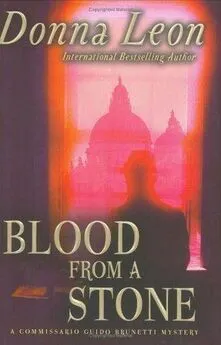
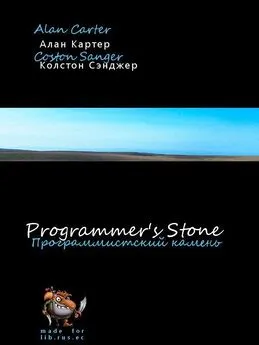
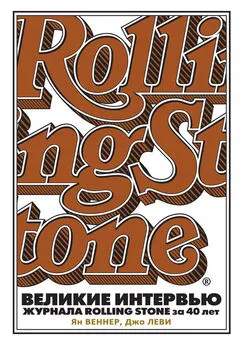
![О Генри - С высоты козел [From the Cabby's Seat]](/books/1083418/o-genri-s-vysoty-kozel-from-the-cabby-s-seat.webp)
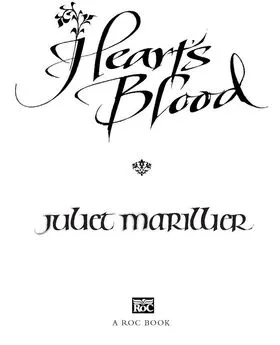
![Инна Владимирова - Blood diamond [litres самиздат]](/books/1149324/inna-vladimirova-blood-diamond-litres-samizdat.webp)
